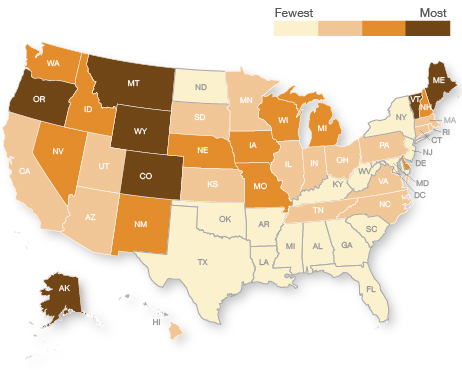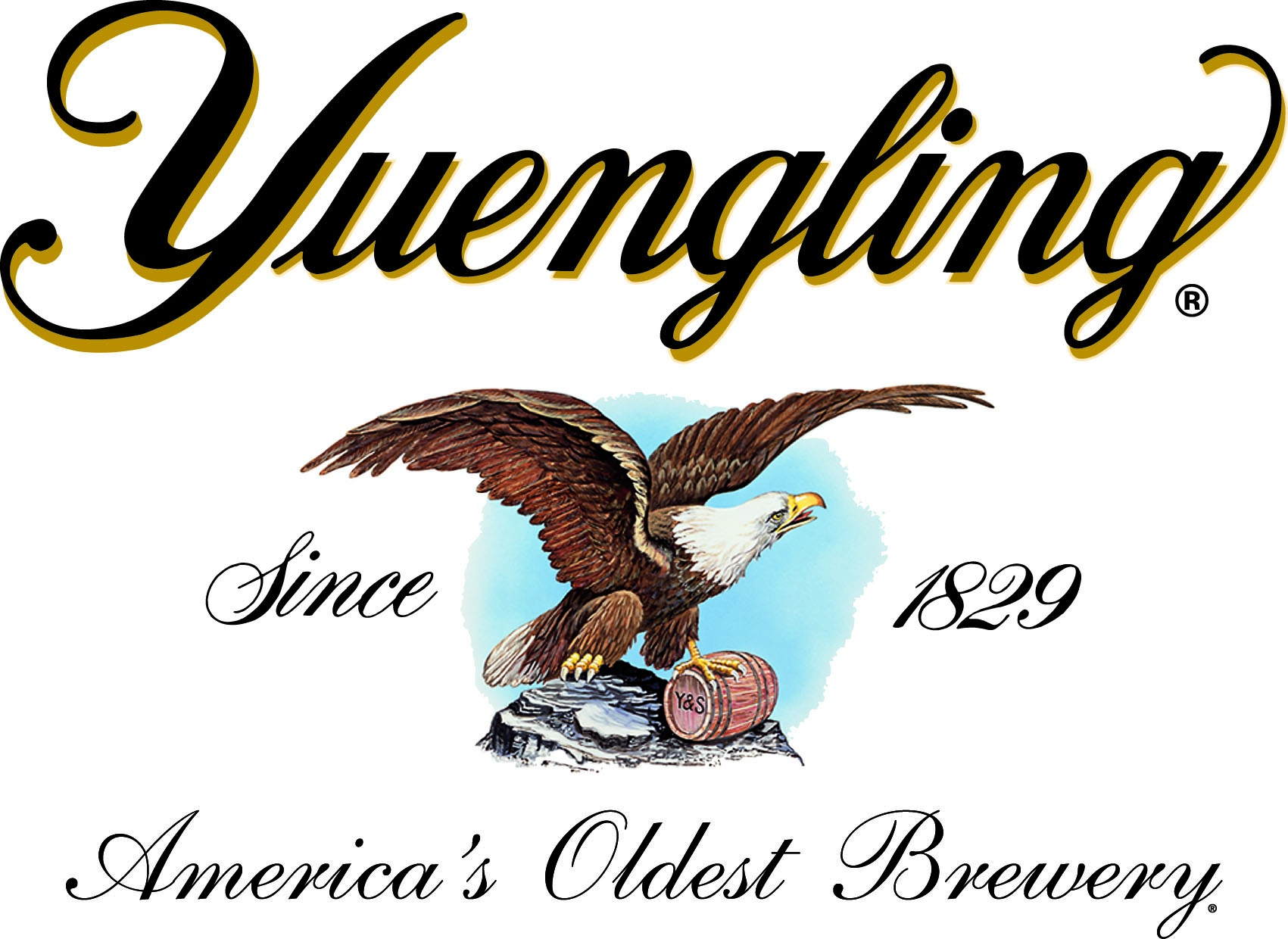
A map of the states with the most breweries per capita.
Source: Brewers Association
Credit: Lam Thuy Vo / NPR
In non-beer markets there are issues where the vast majority of the companies making a product are only producing a fraction of the actual product in the market place when compared to one or two major stake holders. This issue, however, is most pronounced with beer. It seems that while making up 95% of the market place, craft breweries only produce 6% of the beer.
Three multinational corporations own most of the 20 gigantic, highly industrialized breweries that produce the vast majority of American beer. It’s been a great Wall Street bonanza, but the results are sobering. The largest brewer in the US, Anheuser-Busch, belongs to Brazilian multinational InBev, the largest brewer in the world. American number two, Miller, is part of SABMiller, headquartered in London, the second largest brewer in the world. Coors was acquired by Canadian brewer Molson, now the Molson Coors Brewing Company, fifth largest in the world. As if that weren’t enough deal-making, SABMiller and Molson Coors Brewing Company formed the joint venture MillerCoors. However, Pabst Brewing Company is still independent.
But craft beer brewers operate in their own micro climate. In 2011, production jumped 13% to 11,468,152 barrels, for a 5.7% share of the US beer market in volume, according to the Brewers Association. With craft beers being more expensive, retail sales jumped 14.5% to a record $8.7 billion—for a 9.1% share of the $95.5 billion US beer market.
Even with this relativity small market share, big beer is not happy. They continue to exert their force in the market place pushing their nationally distributed craft beer brands into every corner of the market, forcing out locally brewed beers.
Big beer knows that nationally produced and distributed beer representing the largest market share can easily be replaced by brewing your own beer or going down to your local brew pub for a beer that was brewed locally. It is for this reason that they market their product so aggressively.
That being said, you can make a difference. Producing your own beer or buying local beer helps keeps money and jobs in a local economy. So next time you’re out buying your beer remember, think globally, but act locally.
Source: http://www.businessinsider.com/




Follow Us!